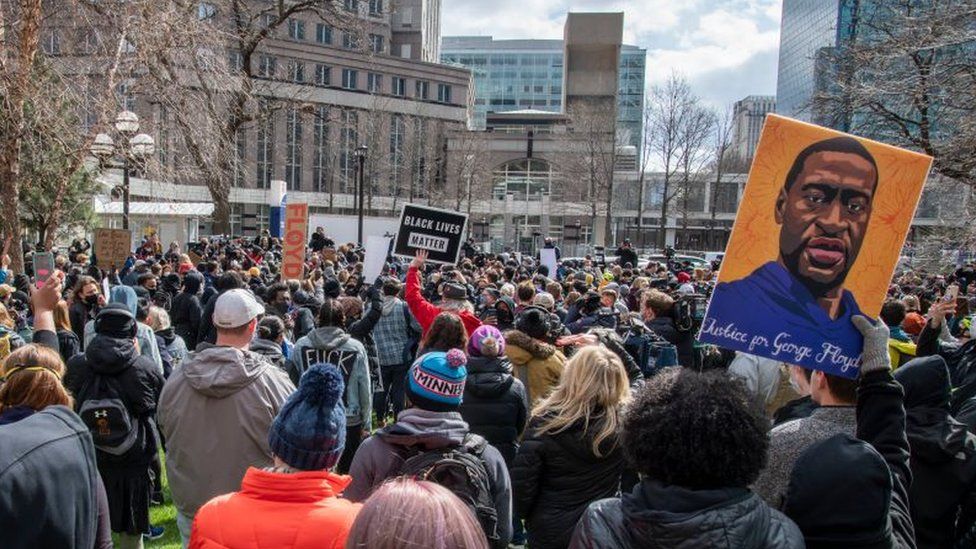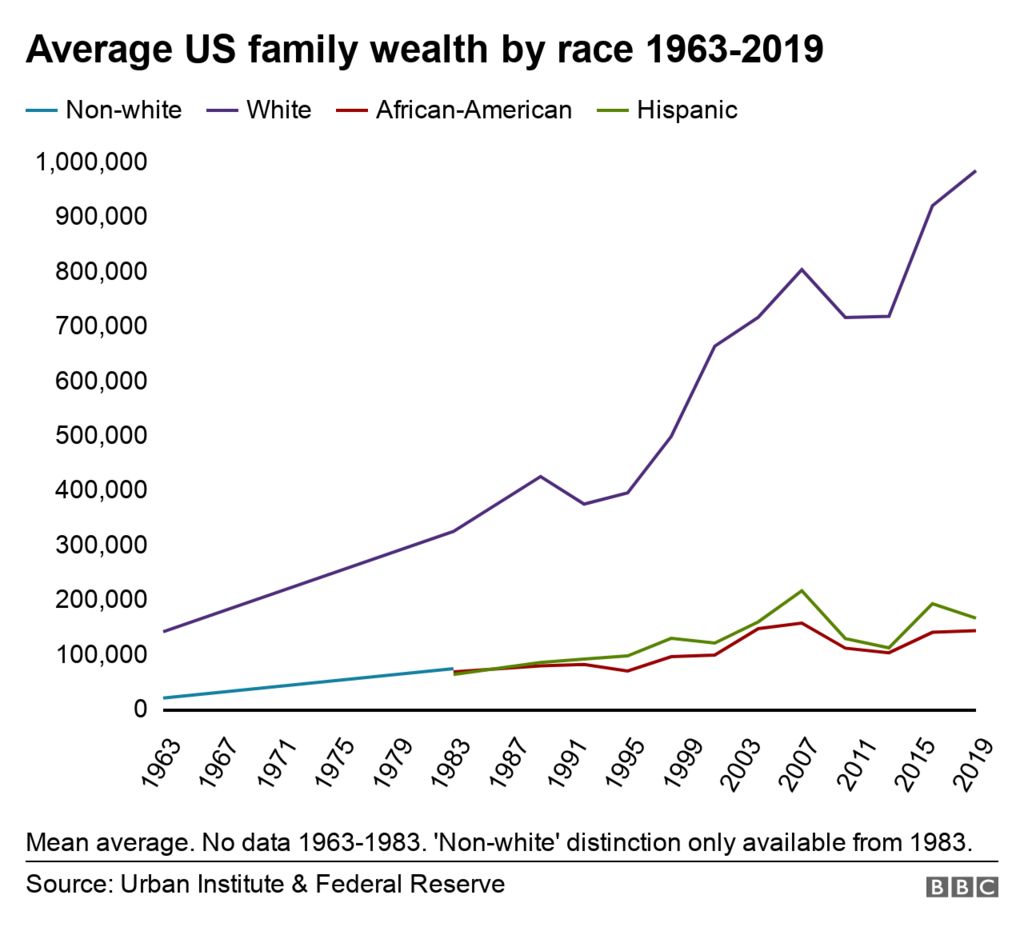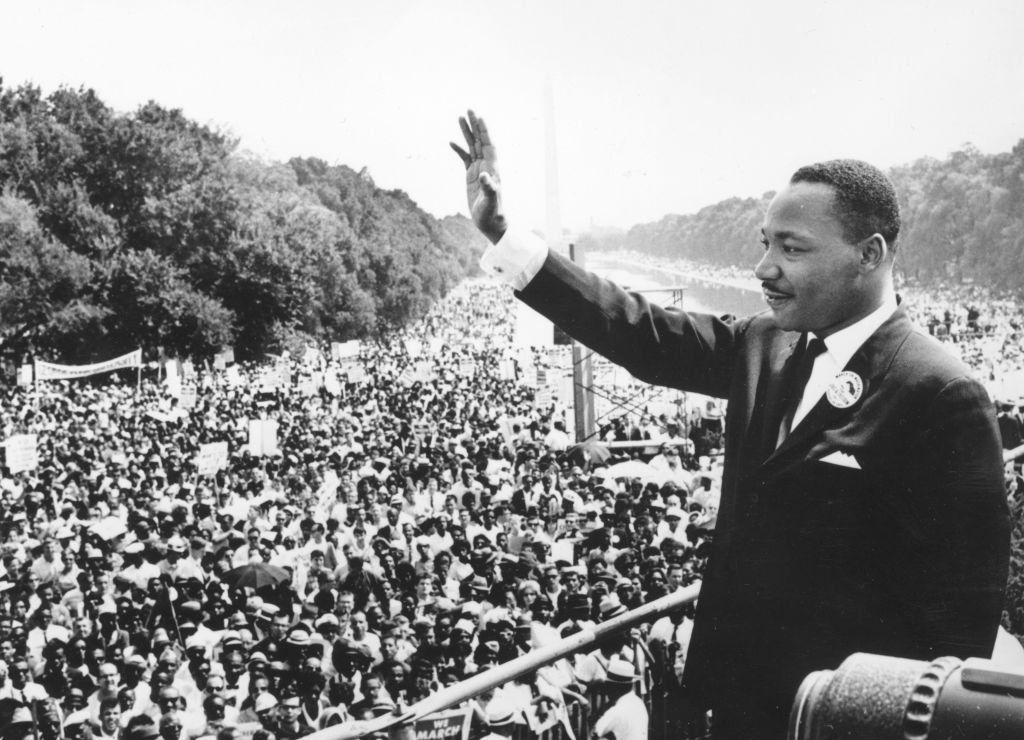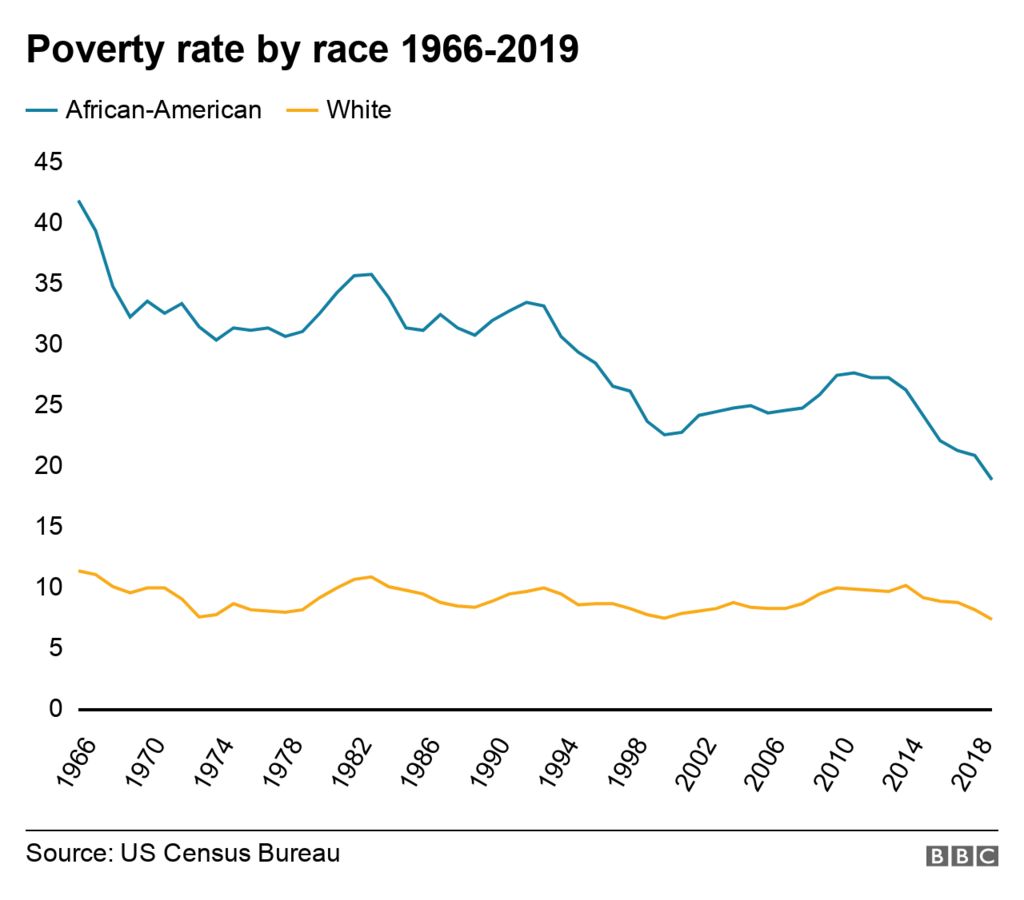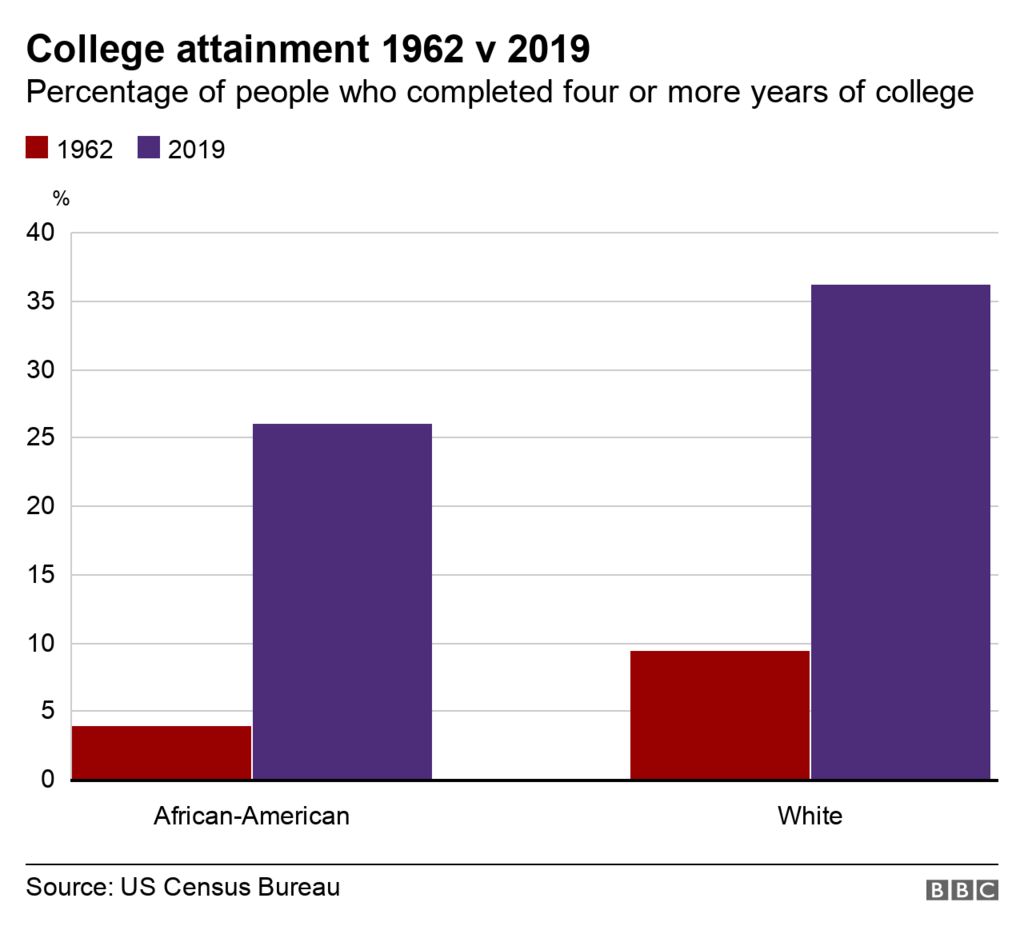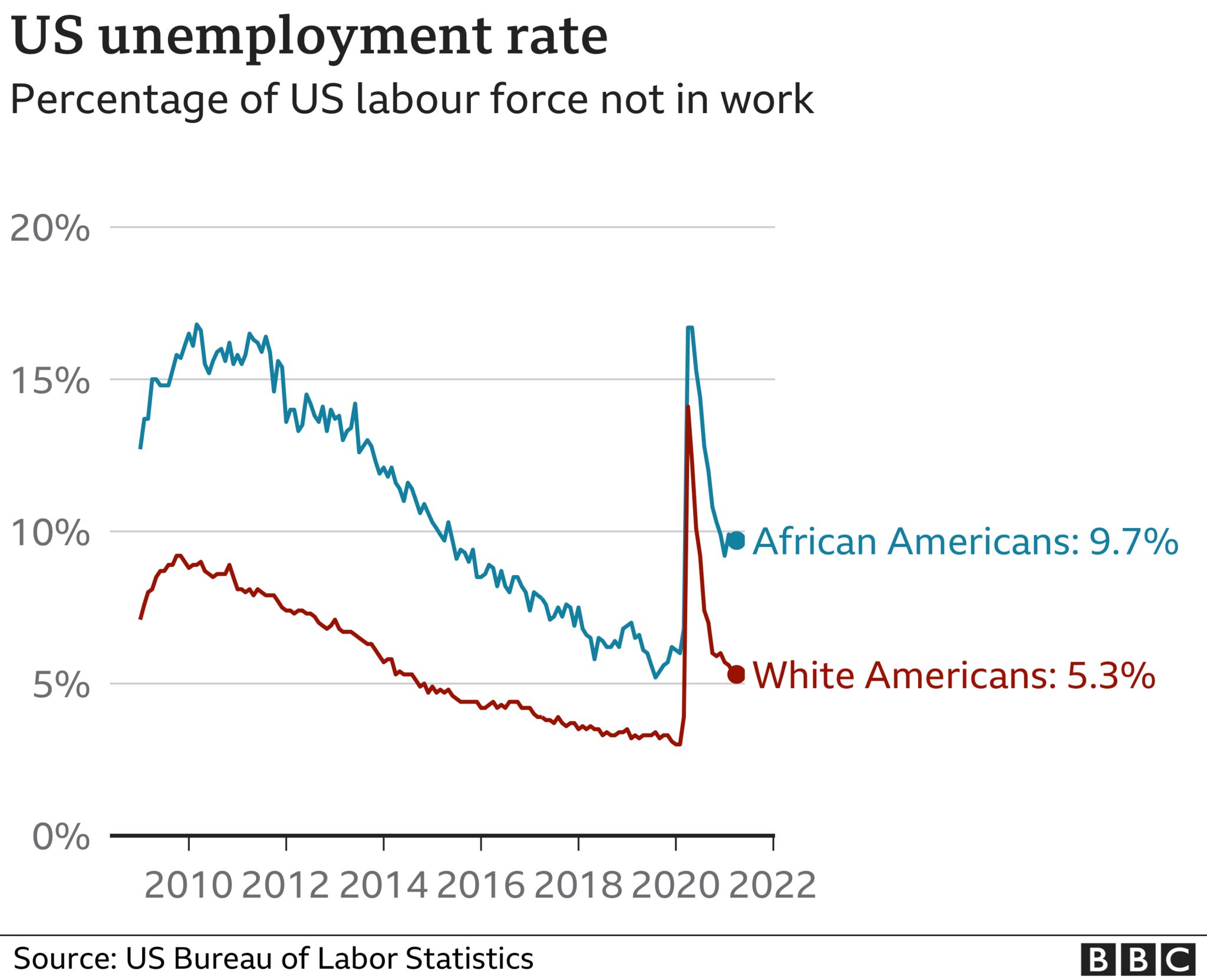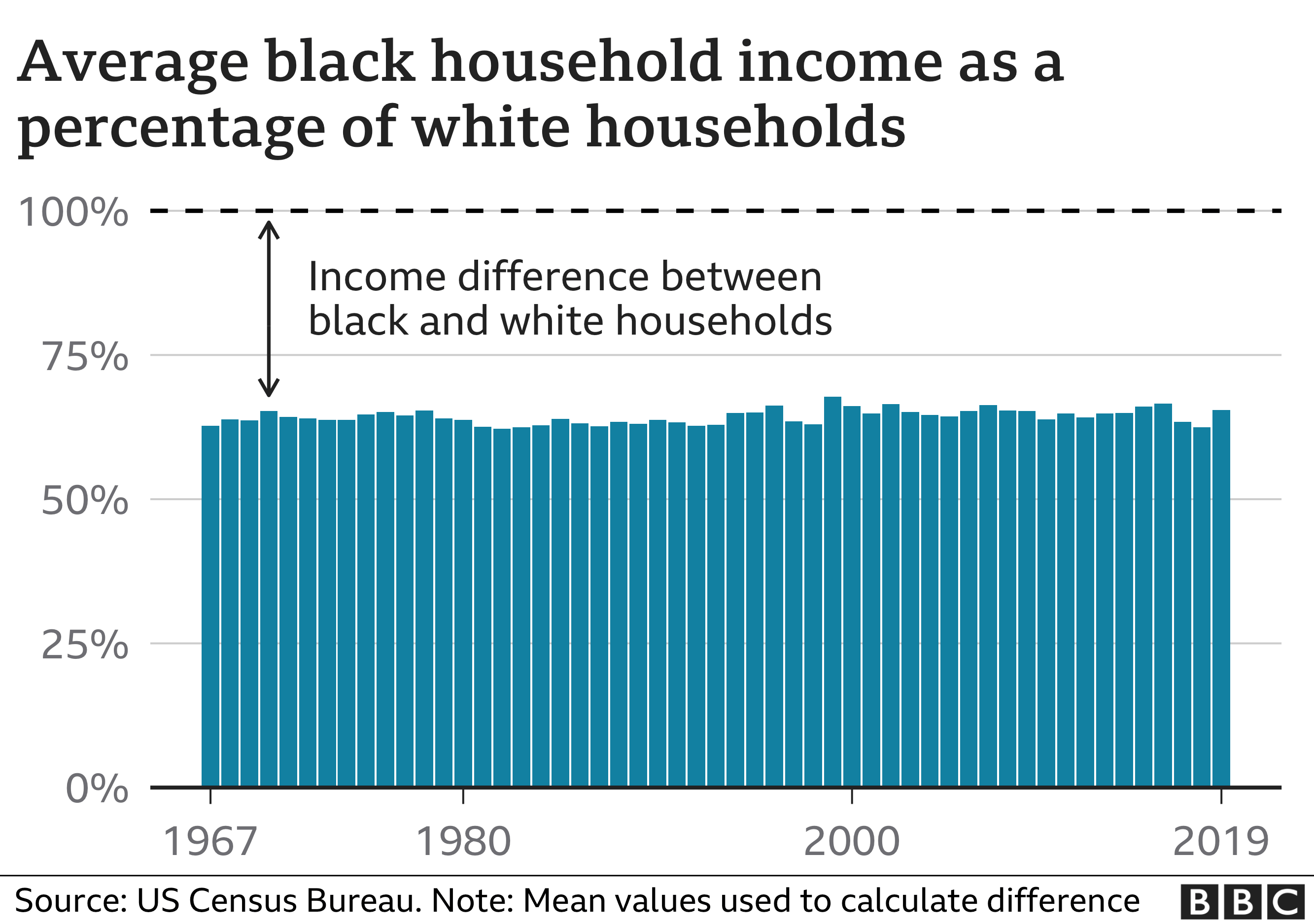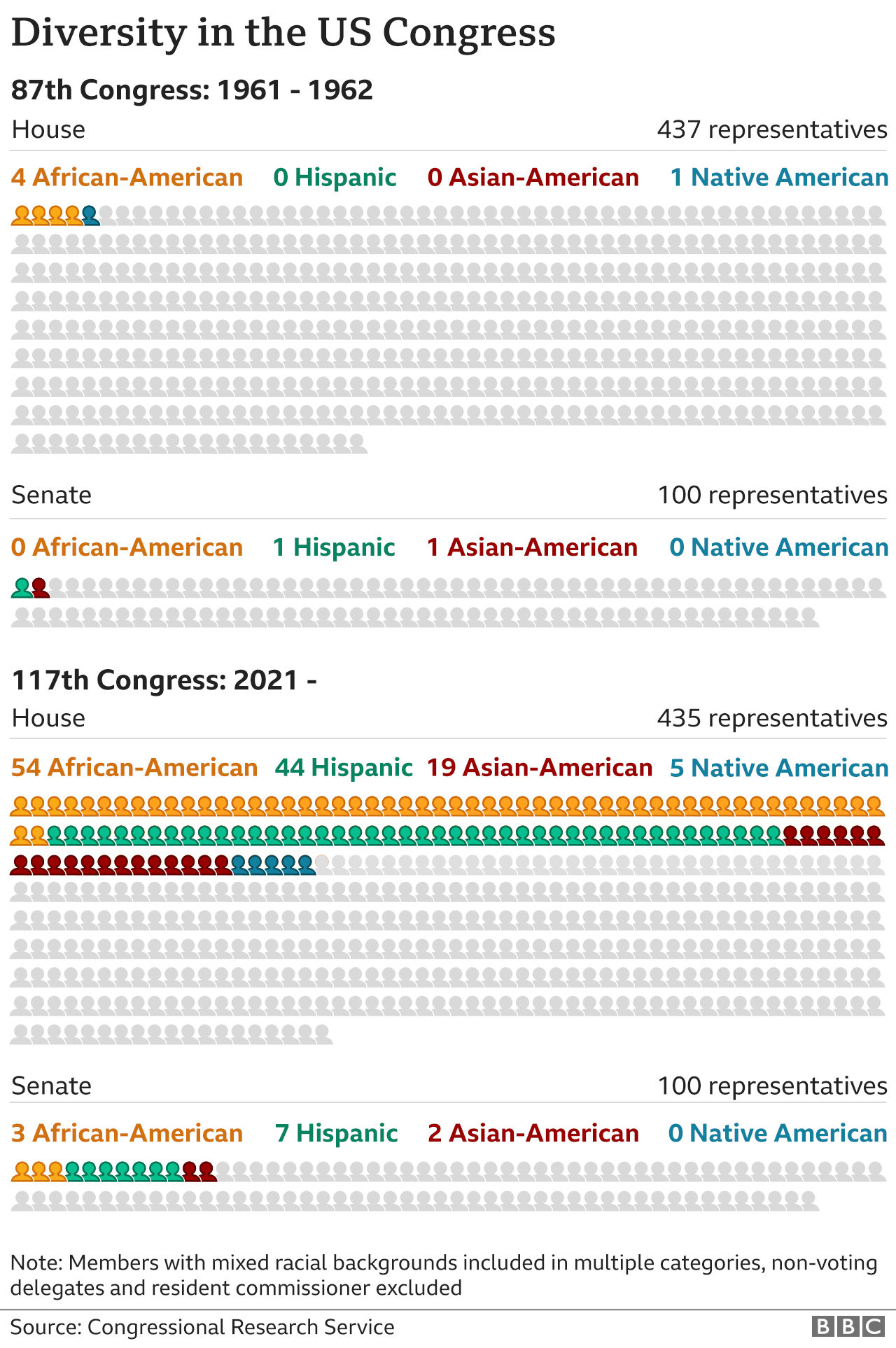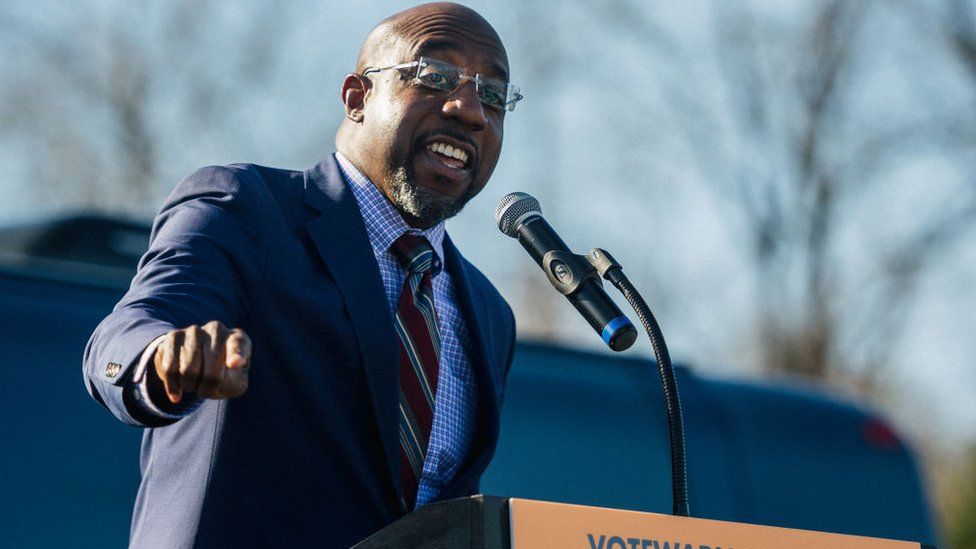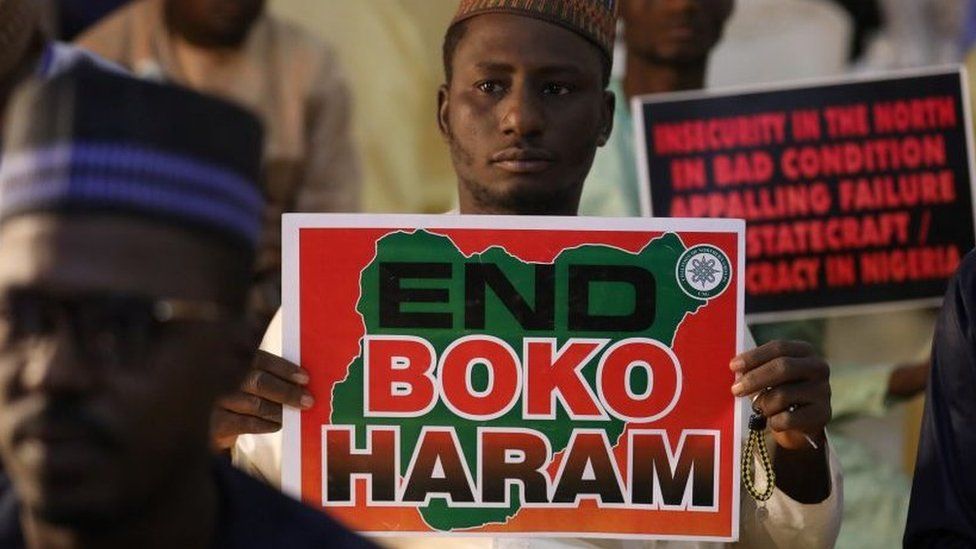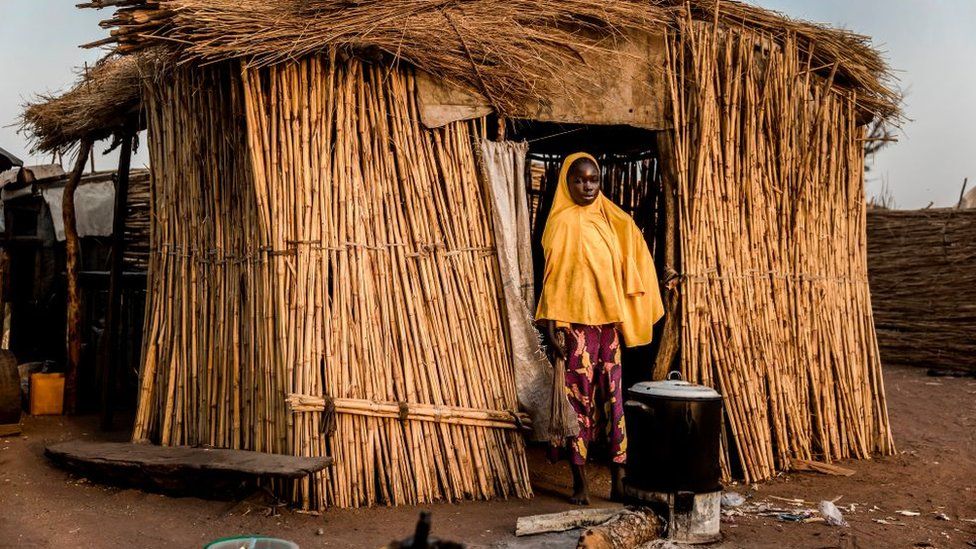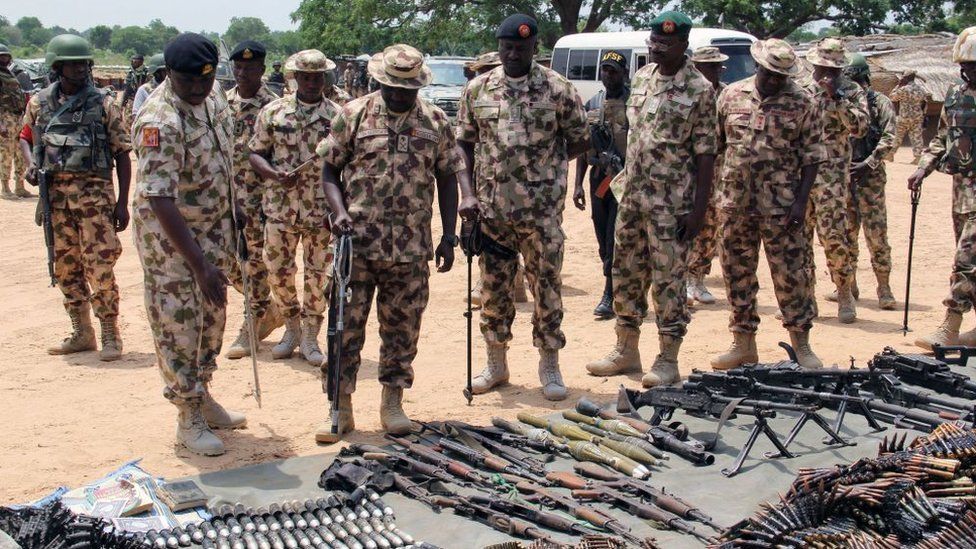BBC
By Jake Horton
BBC Reality Check
A year on from the death of George Floyd, there's a renewed focus on the long struggle by African Americans for equality in the US.
In August of 1963 civil rights leader Martin Luther King led the March on Washington to demand racial justice.
So how much progress have black people in the US made since the 1960s? We've looked at six measures.
1. Family wealth
In 2019, the latest data available, the average wealth of a white family was almost seven times more than a black family in the US.
The black-white wealth gap was larger in 2019 than it was in 1983, when black family wealth data was first collected.
In 2019, an average white family's wealth was over $800,000 (£565,000) more than that of an average black family.
Wealth is calculated by a family's assets - such as a house or savings - minus their debts.
Up until the 1980s, the data collected had non-whites all grouped together, rather than in separate groups.
Researchers at the Brookings Institute say: "The wealth gap reflects a society that has not and does not afford equality of opportunity to all its citizens."
Inheritance accounts for roughly 4% of annual household income in the US - so generational inequalities continue to have an impact, with less money being passed down through black families.
2. Poverty
Although the wealth disparity remains significant, African Americans have become economically better off since the 1960s.
According to the latest data, as of 2019 a smaller proportion live in poverty than ever before.
In 2019, the black poverty rate was 18.8% - about half of that in 1966.
The white poverty rate has remained relatively steady.
There are about 8 million African Americans living in poverty, according to the latest US Census Bureau report.
Poverty in the US is calculated by judging if a family's total income is less than the family's needs. If it is, then every person in that family is considered to be in poverty.
3. Attending college
This is another area in which progress has been made since the 1960s.
More African Americans had completed four years of higher education by 2019 than ever before - 26% compared with just 4% in 1962.
College attainment by white Americans has also increased since the 1960s - but at about half the rate.
4. Jobs
The African-American unemployment rate reached a record low of 5.5% in September last year - but it spiked sharply because of the huge impact of the coronavirus crisis on the US economy.
Before this, the white unemployment rate had consistently been about half of the black unemployment rate since records began in the 1970s.
The recent uptick in job losses has also disproportionately affected African Americans - their unemployment rate is 3.6% higher than the overall figure.
5. Wages
There hasn't been much movement in the disparity between the wages of black and white Americans either.
The average income of black households is around 65% that of white households, with this disparity barely changing over the past 50 years.
Black wages have gone up, but roughly in line with white wages.
And today's average wage adjusted for inflation has about the same purchasing power as it did 40 years ago.
6. Representation in Congress
Progress has been made in black representation in politics, with today's US Congress being the most diverse ever.
The current Congress - the US legislative branch of government, made up of the House of Representatives and the Senate - has 57 African-American members, up from 55 in the previous term.
As voting rights and protections were expanded during the civil rights movement, the number of black lawmakers increased.
The first elected Congress of the 1960s had just four African-American members - but by the end of the 1960s, there were 11.
This number has continued to grow and has more than doubled since the start of the 1990s.
